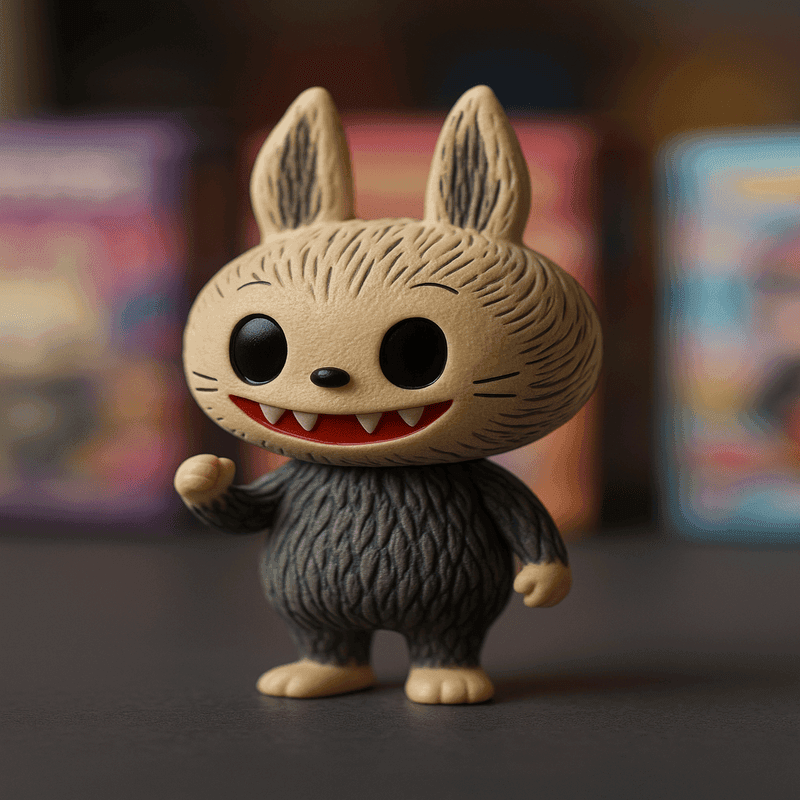Lafufu dolls have become the latest collectible craze, inspired by the story series ‘The Monster’. They were first designed by Kasing Lung, a Hong Kong-born, Belgium-based artist. Today, these dolls are sold by the Beijing-based toy giant Pop Mart (“Lafufu Retailer”). However, they’ve recently made headlines for the wrong reasons—media reports suggest a worrying surge in counterfeit Lafufu dolls flooding the market.
Sale Strategy
The Lafufu retailer, uses a ‘blind box’ strategy to attract buyers—customers purchase sealed boxes without knowing which figurine is inside. Each series usually features a rare collectible, often labeled as a “secret” or “hidden” figure, with odds as low as 1 in 144. The thrill of surprise, combined with limited editions and short-run releases, fuels anticipation and a sense of urgency among collectors.
The Rise of the Lafufu Retailer
Founded in 2010, Pop Mart secured its first undisclosed investment in 2011 from Mochisan Venture Capital. The company went public in December 2020, raising USD 676 million through a highly successful IPO. Since then, its stock has surged—currently trading at HKD 253, marking a remarkable 565% jump from its IPO price of HKD 38.50.
Funding Rounds
| Announced Date | Transaction Name | Number of Investors | Money Raised | Lead Investors |
| May 5, 2020 | Private Equity Round – Pop Mart | 3 | $100M | China Renaissance, HSG, Loyal Valley Capital |
| Mar 22, 2018 | Post-IPO Equity – Pop Mart | 2 | CN¥40M | — |
| Nov 30, 2016 | Series D – Pop Mart | 3 | CN¥19.5M | — |
| Jul 5, 2016 | Series C – Pop Mart | 3 | CN¥15M | — |
| May 22, 2014 | Series B – Pop Mart | 1 | CN¥5.6M | QF Capital |
| May 1, 2014 | Series B – Pop Mart | 2 | CN¥10M | Golden Eagle, Mochishan Venture Capital |
| May 1, 2013 | Series A – Pop Mart | 1 | CN¥6M | Mochishan Venture Capital |
| Jan 1, 2011 | Angel Round – Pop Mart | 2 | — | Mochishan Venture Capital |
Source: Crunchbase
Expert Outlook
- HSBC hiked the target price of Pop Mart’s scrip because of the increasing popularity of its Lafufu/Labubu dolls.
- Labubu’s IP vested with Pop Mart has been termed as “superIP” by JP Morgan Stanley, highlighting its major impact on the company’s sales trajectory.
Track Deal’s Analysis
Pop Mart’s growing dependence on Labubu dolls raises concerns for two key reasons:
- The Gen Z collectible trend tends to fade quickly, as consumers often lose interest due to repetitive designs and increasing prices.
- The rise of counterfeit Lafufu dolls is a serious threat. Perfect replicas sold at lower prices can significantly undercut Pop Mart’s market.
Analysts and investors have voiced concerns over the rapidly shifting preferences of young consumers. While the Labubu craze may lose steam, Pop Mart’s future isn’t necessarily at risk. The company is actively exploring new avenues—such as digital collectibles and gamified experiences like NFTs. These initiatives could help attract tech-savvy buyers and extend Pop Mart’s appeal beyond physical toys, tapping into the growing interest in digital art.
To stay ahead, Pop Mart must diversify. Creating more collectible characters is key—but so is tackling challenges like rising prices and counterfeit sales with a focused, forward-thinking strategy.
Pages: 1 2



